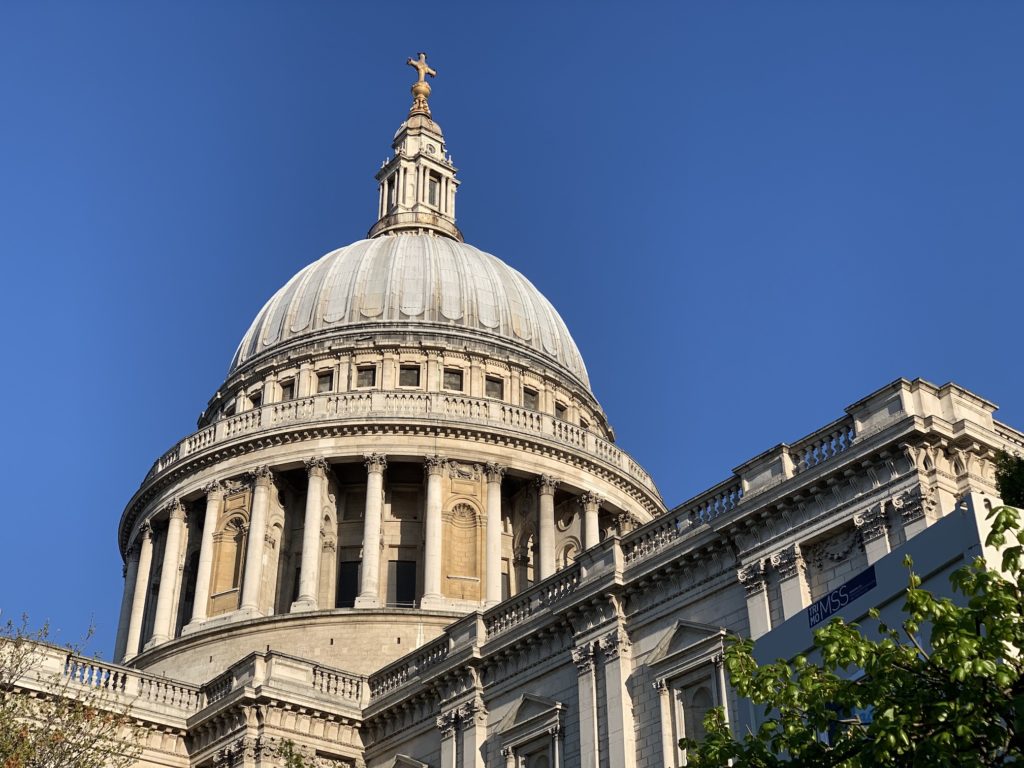Punxsutawney Phil has seen his shadow. At least three more weeks of lock-down…
Like many of the 7.5 billion inhabitants of this insignificant little blue green planet we call home, we had plans. (Our best laid plans, you might say.)
Funny thing about plans – they’re bets on the future state of the universe. Much of the time, most of the time, reality cooperates. Tomorrow will probably be pretty similar to today, which is pretty similar to yesterday.
I don’t know anyone who’s plans included a global pandemic, infecting 2.1 million people, claiming over 140 thousand lives to date, forcing huge swaths of the population to stay in their homes, shuttering the global economy, and setting us on an uncertain path toward an as-yet-indescribable new normal.
And speaking of “new normal,” I can’t be the only one who’s (already) finding that phrase irritating. We have a deep desire to name things. I get it. And I guess “new normal” is as good a name as I can think of for the current uncertainty. And it seems true that we’re going to have no choice but to rapidly evolve our societal norms. But still. “New normal” is high on my list of phrases I’ll be happy to see the back of. Like “lock-down.”
Like many, I’ve been thinking about why basically all the western countries failed so utterly and completely to prepare for, and respond to, this pandemic. As comforting as it might be to think it was unpredictable, it wasn’t. People have been raising the general alarm about our global susceptibility to pandemic for years, and this specific event has been raising alarms for several months. But like a car in a mall parking lot, the alarm was screaming, and everyone was ignoring it.
I think it has a lot to do with how we learn. And how we don’t. And how a lack of deep scientific literacy among elected leadership became a force multiplier for uncertainty.
You might disagree, but on the whole I think individuals are pretty good at learning from their experiences. It’s generally a good idea not to make the same mistake twice – so much so that we often “over-index” on not doing so (everyone remember taking off their shoes at airports ’cause of that one guy who tried to get something on a plane in his shoes? everyone remember airports? ahh. good times.) It’s also usually sensible to assume that what’s happened (many times) before is pretty likely to happen again – and to assume that extraordinary events are… well… extra-ordinary.
What most of us are not so great at is learning from other people’s mistakes. Especially mistakes made by people we don’t have a high implicit degree of trust in. It’s too easy to convince ourselves that we’re different. That we’re smarter. That they were just unlucky.
Responding in the moment to the pandemic required taking action without direct experience – before, as they say, all the facts were in. It required us to take action based on theory.
It required realizing that novel in “novel coronavirus” was the game changer. That the exponential nature of the spread of infection meant a decision today was literally twice as good as that same decision tomorrow. And maybe most difficult, it meant realizing and admitting that we weren’t different. We weren’t smarter. And that this time we were all unlucky.
Politicians – at least US politicians – rarely have scientific training or backgrounds. They live in the shades of grey – in organizational structures and leadership, and soft power. The good ones have deep experience with the malleable rule systems humans create, negotiating changes to those rule systems is their stock in trade. To those people, the predictions of calamity must have been hard to fathom – and the idea that the counter-measures being proposed were proportional and appropriate must have beggared belief.
It couldn’t have helped that the only choice they were being offered by their scientific advisors reduced to a shut down of their economies. Those who acted quickly and decisively to curtail public activity – with immediate and massive economic impact – must have felt like they were taking a hugely expensive bet.
Consider what might have happened if every country, and ever local leader, had acted quickly. In that alternate timeline, with much lower infection rates and mortality counts, it seems certain that the nagging question would be if we over-reacted.
The key question now, and one I don’t have any answers to, is “how do we get out of this mess?”
And as we navigate toward that “new normal,” how do we learn from our near-global mistake? And how do we apply that learning to other low probability high impact events? How do we convince ourselves that just because yesterday and today are fine, there’s a small but important chance that tomorrow may be the day when our best laid plans gang aft agley.

